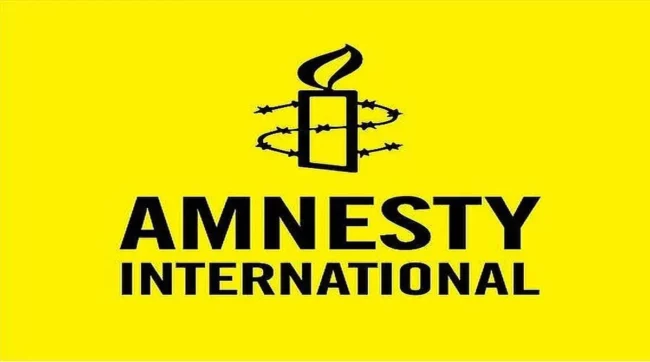Amnesty International (AI) on Wednesday, said the shrinking civic space is not only happening in Nigeria, but a global phenomenon.
Speaking in Abuja at a Human Rights Fiesta, organised by the organisation to commemorate this year’s International Human Rights Day, the AI Programme Manager, Barbara Magaji said governments put in place restrictions to prevent people from enjoying their fundamental rights.
She lamented the violation of fundamental human rights, lack of respect for democracy in most countries.
In the Programme themed, “Shrinking Civic Space: Implications on Human Rights Advocacy in Nigeria” Magaji said, there is an urgent need to protect and promote civic space for human rights advocacy.
In her speech, the keynote speaker and the Executive Director of Invictus Africa, Bukky Shonibare, who spoke on, “Voices Unchained, Bodies Unburied”, said, Nigeria has witnessed an alarming erosion of civic freedoms, adding that, legislative restrictions, digital surveillance, and brutal crackdowns have combined to shrink the space for dissent and advocacy.
Restrictive laws, the keynote speaker said, have been introduced and weaponized to stifle dissent and explained further that, the NGO Regulation Bill, for instance, sought to place civil society organisations under stringent government control, effectively curtailing their independence.
“Similarly, the Cybercrimes (Prohibition, Prevention, etc.) Act has been used to target critics, with provisions on “cyberstalking” and “defamation” invoked to harass journalists, activists, and social media users”.
She stressed the need for an urgent need to protect the civic space and the people who risk everything to ensure that voices of protesters are not silenced and that the memories of those who have fallen in the struggle for justice are honored.
“As civic engagement increasingly moves online, digital rights have come under attack. During the #EndSARS protests, the government leveraged digital surveillance, blocked bank accounts of key organisers, and even temporarily suspended platforms like Twitter to suppress dissent. This control over digital spaces underscores the shrinking avenues for free expression”.
According to her, the violent suppression of protests was a clear manifestation of Nigeria’s shrinking civic space, and cited an example of the #EndSARS movement, where the state responded to peaceful demonstrations with arrests, intimidation, and violence, culminating in the tragic Lekki Toll Gate massacre.
“These incidents reflect a pattern of state overreach that undermines the fundamental right to protest.
“Civic space is the environment that allows individuals and groups
to organize, participate, and communicate freely—without fear of reprisal. It is the foundation upon
which a healthy democracy is built, providing citizens with the freedom to voice their opinions, assemble peacefully, and advocate for change.
“In Nigeria, these freedoms are enshrined in our constitution. Section 39 guarantees the right to freedom of expression, affirming that every person has the right to hold opinions and to receive and impart ideas without interference.
“Similarly, Section 40 protects the right to peaceful assembly and association, enabling Nigerians to organize, protest, and mobilise around shared causes.
“These constitutional rights are further reinforced by international obligations. Nigeria is a signatory to the Universal Declaration of Human Rights, which, Articles 19 and 20 guarantees freedom of expression and the right to peaceful assembly,” she said.
READ MORE FROM: NIGERIAN TRIBUNE
Get real-time news updates from Tribune Online! Follow us on WhatsApp for breaking news, exclusive stories and interviews, and much more.
Join our WhatsApp Channel now
